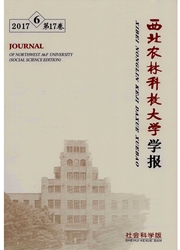
欢迎您!东篱公司
退出

 中文摘要:
中文摘要:
期望值理论假定人们都是理性的,无法解释人们为何投保。期望效用理论认为当资产存在随机损失时,人们的效用值依赖于资产的绝对水平,一般人是风险厌恶的。从而选择投保。本文质疑了期望鼓用理论在保险学中的分析,并用前景理论采解释保险业务,提出购买保险产品者在面临收益时是风险偏好的,在面临损失时是风险规避的观点。
 英文摘要:
英文摘要:
Expectation value theory assumes everyone is rational, and this can't explain why insurance is purchased. Expect utility theory assumes typical people are risk averse when asset has stochastic losses, people's utility values rely on the absolute quantity of asset, and thus explains the occurrence of insurance. This paper oppugns the analysis of expect utility theory, uses prospect theory to interpret insurance, and points out that insurance buyer is risk seeking when facing gains and risk averse when facing lose.
 同期刊论文项目
同期刊论文项目
 同项目期刊论文
同项目期刊论文
 期刊信息
期刊信息
